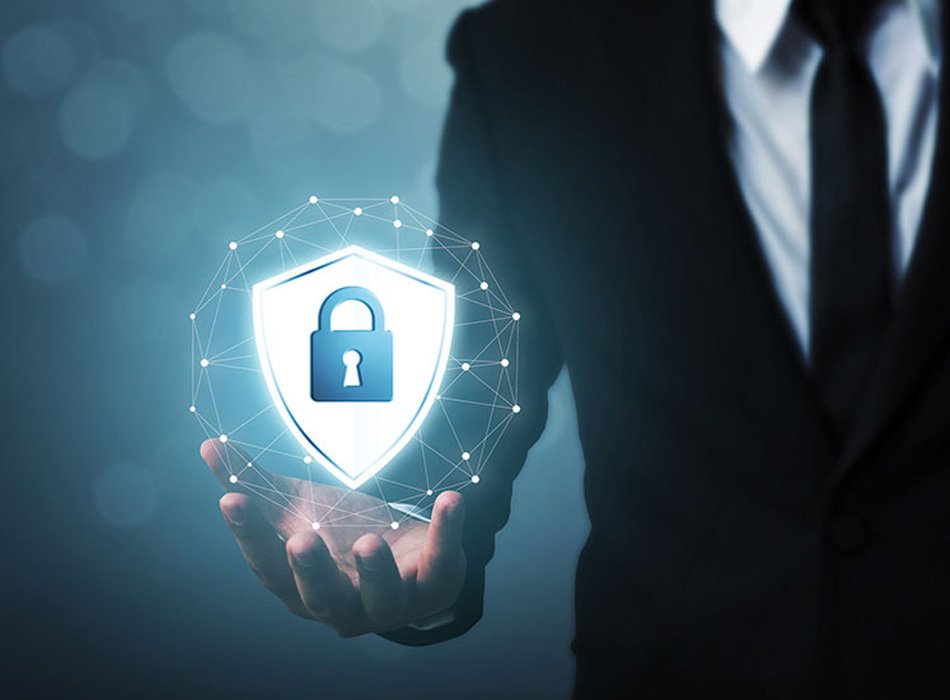In today’s increasingly digital world, businesses face rising cybersecurity risks. Cyberattacks, data breaches, and the threat of financial loss or reputation damage have never been more prevalent. For companies of all sizes, ensuring the security of sensitive data and digital assets is crucial. Many businesses, especially small and medium-sized enterprises (SMEs), struggle with maintaining adequate cybersecurity measures. This is where a Virtual Chief Information Security Officer (VCISO) can play a vital role.
A VCISO is a cybersecurity expert who provides strategic guidance and leadership on information security matters, but instead of being a full-time, in-house employee, they work remotely, often on a contractual or part-time basis. This allows businesses to access top-tier cybersecurity talent without the high costs associated with hiring a full-time CISO. The growing demand for digital transformation and the increase in cyber threats have led businesses to seek flexible, affordable solutions like VCISOs.
In this article, we’ll explore what a VCISO does, why your business needs one, and how they can help protect your digital assets, all while being cost-effective and scalable.
What is a Virtual Chief Information Security Officer (VCISO)?
A Virtual Chief Information Security Officer (VCISO) is a cybersecurity professional who offers high-level guidance and expertise in securing a company’s digital infrastructure. The role of a VCISO is similar to that of a traditional Chief Information Security Officer (CISO), but with the key difference that a VCISO works remotely and typically on a contractual or part-time basis.
VCISOs are responsible for overseeing a company’s information security strategy, ensuring compliance with data protection laws, and developing policies to protect against cyber threats. Unlike a full-time CISO, who may manage an in-house team and directly oversee day-to-day cybersecurity activities, a VCISO provides oversight, strategic guidance, and expertise, often stepping in as an advisor to internal teams.
A VCISO may work with businesses across various industries, providing tailored cybersecurity strategies and helping implement best practices. This flexibility makes the role ideal for businesses that need expertise but cannot afford or do not require a full-time security officer. The advent of remote work and flexible work arrangements has made the VCISO model more popular, as it offers businesses a cost-effective way to enhance their cybersecurity efforts.
Why Your Business Needs a VCISO
Many small and medium-sized businesses (SMBs) often overlook the importance of cybersecurity until it’s too late. Hiring a full-time Chief Information Security Officer (CISO) may be financially out of reach for these businesses. This is where a VCISO can fill the gap by offering high-level expertise at a fraction of the cost.
A VCISO provides businesses with the strategic leadership needed to protect their digital assets, such as sensitive data and intellectual property. They offer specialized knowledge in areas like risk management, incident response, and regulatory compliance, ensuring your company stays protected from threats while adhering to industry standards.
One key advantage of a VCISO is that they can scale their services to meet the specific needs of your business. Whether you’re a small startup or a growing enterprise, a VCISO can offer the flexibility to adjust your security strategy as your company expands. They’re also available as a short-term solution for specific projects or challenges, making it easier to address security concerns without committing to a full-time hire.
Key Responsibilities of a VCISO
A VCISO’s role is multifaceted, focusing on strategic cybersecurity leadership while also ensuring compliance and risk management. Here are some of the key responsibilities of a VCISO:
Risk Management and Assessment
One of the primary responsibilities of a VCISO is conducting thorough risk assessments. They identify potential vulnerabilities in a company’s systems and processes and assess the likelihood of various cybersecurity threats, such as data breaches, hacking attempts, or insider threats. Based on these assessments, the VCISO helps to develop and implement a risk management strategy that minimizes exposure to potential cyber risks.
Developing and Enforcing Cybersecurity Policies
A VCISO plays a vital role in creating and enforcing comprehensive cybersecurity policies. These policies may cover a wide range of topics, including data encryption, password management, secure communication channels, and employee training. By ensuring these policies are followed, a VCISO helps create a culture of cybersecurity awareness within the company, reducing the likelihood of human error leading to a breach.
Overseeing Data Protection and Compliance
In an era of strict data protection regulations, such as GDPR and CCPA, a VCISO ensures that your business complies with legal requirements and industry standards. This involves protecting sensitive customer data, overseeing encryption and backup protocols, and making sure your business adheres to all relevant laws to avoid costly penalties.
Training and Guiding Internal Teams on Cybersecurity Best Practices
A VCISO isn’t just a consultant—they also act as a mentor for your internal IT team. They provide cybersecurity training to employees, ensuring everyone understands the importance of securing data and following best practices. This proactive approach helps minimize the risks associated with human error, such as falling for phishing attacks or misconfiguring systems.
How a VCISO Helps Improve Business Security
The role of a VCISO is essential in improving overall business security. Here are some ways they can help:
Identifying and Addressing Security Vulnerabilities
A VCISO continuously monitors the business’s IT infrastructure to identify potential security weaknesses. By conducting regular audits and penetration tests, they ensure that any vulnerabilities are detected early and addressed before they can be exploited by cybercriminals.
Ensuring Regulatory Compliance
Adhering to regulatory requirements is critical for avoiding fines and maintaining customer trust. A VCISO ensures that your business complies with relevant industry regulations and helps prepare for audits. They also assist in implementing systems and processes that protect sensitive customer information, reducing the likelihood of data breaches.
Minimizing the Risk of Cyberattacks and Data Breaches
With the rise in cyberattacks targeting businesses of all sizes, having a VCISO on your team is crucial. A VCISO develops a robust cybersecurity strategy, including firewalls, intrusion detection systems, and real-time monitoring, to prevent and detect attacks. In the event of a breach, a VCISO leads the incident response process to minimize damage and restore operations as quickly as possible.
The Benefits of Hiring a VCISO
Hiring a VCISO provides numerous benefits for businesses, particularly those without the resources to hire a full-time CISO. Here are some of the top benefits:
Access to Experienced Professionals
VCISOs bring a wealth of experience and expertise to the table. Many have worked in large corporations or have a deep understanding of various industries. This knowledge helps businesses navigate complex cybersecurity challenges, from compliance requirements to protecting against emerging threats.
Flexibility and Scalability
A key advantage of hiring a VCISO is flexibility. Unlike a full-time CISO, who is tied to one organization, a VCISO can be brought in for specific projects or on a part-time basis, depending on the needs of the business. As the business grows, the VCISO can scale their services to meet new demands, making them an ideal solution for dynamic companies.
Improved Crisis Management and Incident Response
In the event of a cyberattack or data breach, a VCISO is well-prepared to lead the response. They can develop an incident response plan in advance, ensuring the business is ready to handle emergencies. Their expertise allows them to react quickly to mitigate damage, recover lost data, and prevent future attacks.
When Should Your Business Hire a VCISO?
A VCISO is a valuable asset, but knowing when to bring one on board is key. If your business is experiencing rapid growth, expanding into new markets, or handling sensitive customer data, it may be time to consider hiring a VCISO.
If you’ve had a recent security incident or feel uncertain about your company’s ability to protect its data, a VCISO can help assess the situation and implement stronger security measures. A VCISO is also a good choice if you’re struggling to comply with data protection regulations or if your existing IT team lacks cybersecurity expertise.
Choosing the Right VCISO for Your Business
Selecting the right VCISO is a critical decision. You’ll want to look for professionals with a proven track record in cybersecurity, especially in your industry. It’s also important to find someone who understands your business’s specific needs and can develop a tailored strategy.
Here are a few tips for choosing the right VCISO:
- Look for experience in both technical security and strategic leadership.
- Verify their qualifications and certifications in cybersecurity.
- Ensure they have a deep understanding of relevant regulatory requirements.
- Choose someone who communicates clearly and collaborates well with internal teams.
Conclusion
In an era of constant cyber threats, a VCISO offers businesses the expertise, flexibility, and cost-efficiency they need to stay secure. Whether you’re a growing small business or an established company, a VCISO can play a vital role in strengthening your cybersecurity posture, ensuring compliance, and protecting your sensitive data. Hiring a VCISO not only helps reduce the risk of cyberattacks but also empowers your business to stay resilient in the face of ever-evolving digital threats.



